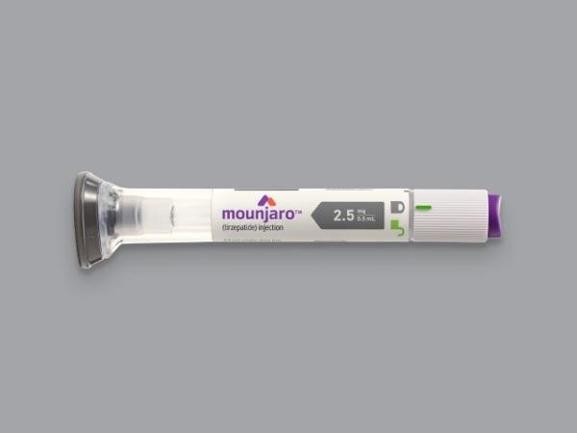Tirzepatide and Alcohol/Food Interactions
There are 3 alcohol/food/lifestyle interactions with tirzepatide.
Caffeine Tirzepatide
Moderate Drug Interaction
Tirzepatide can cause an increase in heart rate and may have additive effects with other medications that can also increase heart rate such as caffeine. There are times when an elevated heart rate is appropriate, like when you are exercising. However, you should contact your doctor if you notice that your heart rate is high at other times for unknown reasons or if it is occurring frequently. Signs and symptoms of an elevated heart rate may include a sensation of a racing or pounding heartbeat, chest pain, shortness of breath, or a heart rate greater than 100 beats per minute in an adult. It is important to tell your doctor about all other medications you use, including vitamins and herbs. Do not stop using any medications without first talking to your doctor.
Alcohol (Ethanol) Tirzepatide
Moderate Drug Interaction
Talk to your doctor before using ethanol (alcohol) together with tirzepatide. Alcohol may affect blood glucose levels in patients with diabetes. Both hypoglycemia (low blood sugar) and hyperglycemia (high blood sugar) may occur, depending on how much and how often you drink. You should avoid using alcohol if your diabetes is not well controlled or if you have high triglycerides, neuropathy (nerve damage), or pancreatitis. Moderate alcohol consumption generally does not affect blood glucose levels if your diabetes is under control. However, it may be best to limit alcohol intake to one drink daily for women and two drinks daily for men (1 drink = 5 oz wine, 12 oz beer, or 1.5 oz distilled spirits) in conjunction with your normal meal plan. Avoid drinking alcohol on an empty stomach or following exercise, as it may increase the risk of hypoglycemia. It is important to tell your doctor about all other medications you use, including vitamins and herbs. Do not stop using any medications without first talking to your doctor.
Tirzepatide Food/Lifestyle
Moderate Food Interaction
Tirzepatide may affect the absorption of other medications that you take by mouth. In some cases, this may affect how well and/or how fast those medications work, or it may make no difference. Talk to a healthcare provider if you have any questions or concerns, and contact your doctor if your symptoms worsen or your condition changes. It is important to tell your doctor about all other medications you use, including vitamins and herbs. Do not stop using any medications without first talking to your doctor.
Switch to professional interaction data
Tirzepatide drug interactions
There are 416 drug interactions with tirzepatide.
Tirzepatide disease interactions
There are 5 disease interactions with tirzepatide which include:
More about tirzepatide
- tirzepatide consumer information
- Check interactions
- Compare alternatives
- Reviews (2,213)
- Latest FDA alerts (3)
- Side effects
- Dosage information
- During pregnancy
- Support group
- Drug class: GLP-1 Agonists (Incretin Mimetics)
- Breastfeeding
- En español
Related treatment guides
Drug Interaction Classification
| Highly clinically significant. Avoid combinations; the risk of the interaction outweighs the benefit. | |
| Moderately clinically significant. Usually avoid combinations; use it only under special circumstances. | |
| Minimally clinically significant. Minimize risk; assess risk and consider an alternative drug, take steps to circumvent the interaction risk and/or institute a monitoring plan. | |
| No interaction information available. |
See also:
Further information
Always consult your healthcare provider to ensure the information displayed on this page applies to your personal circumstances.


